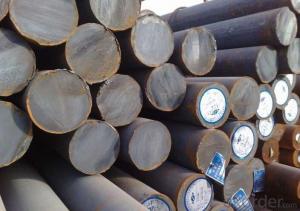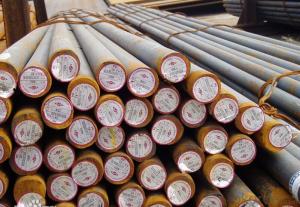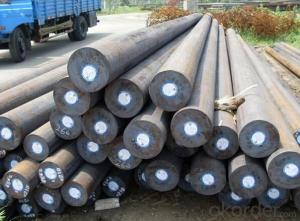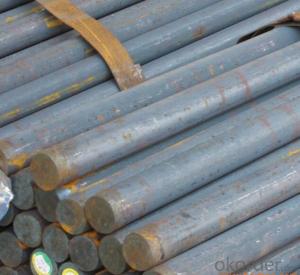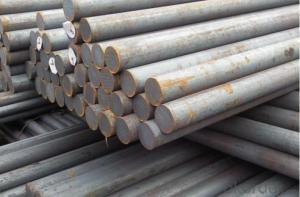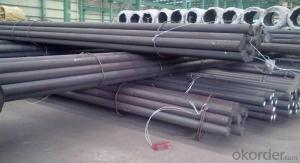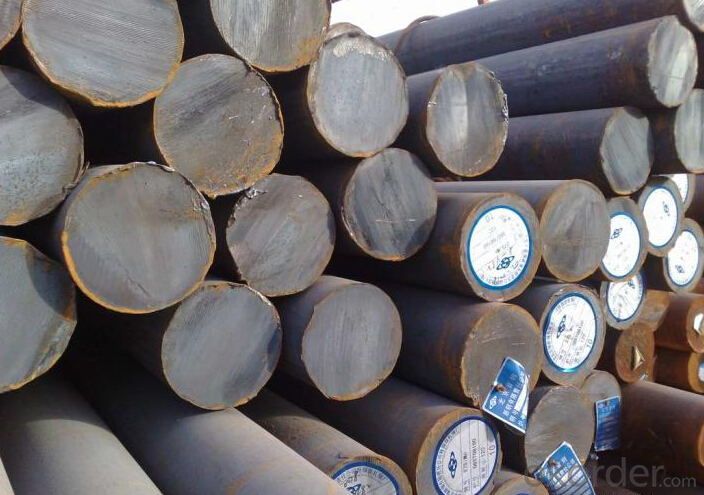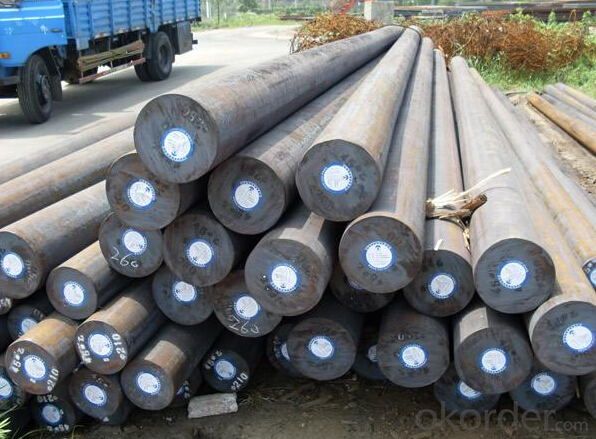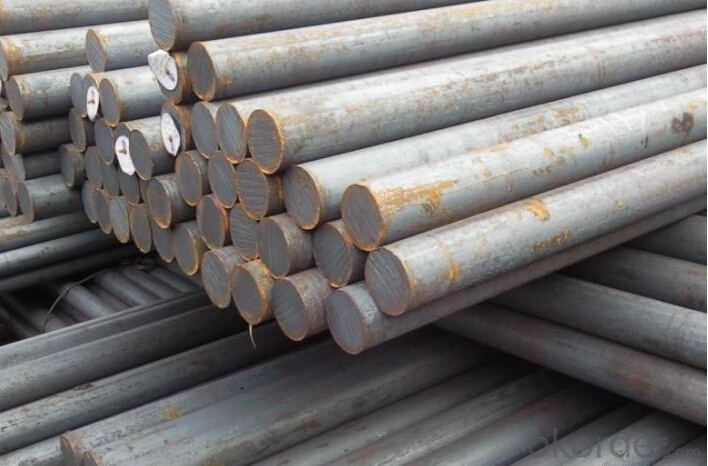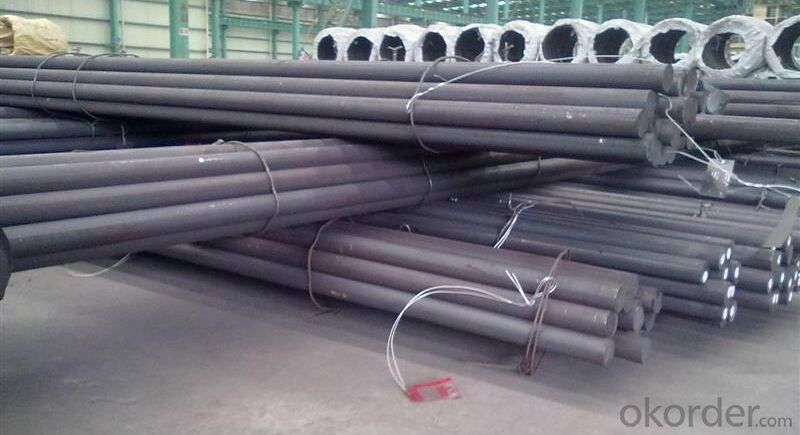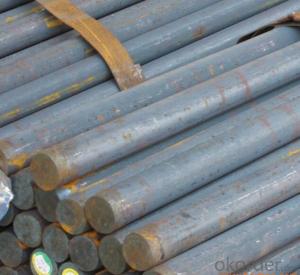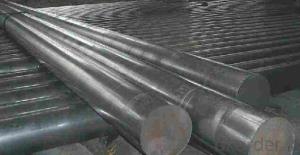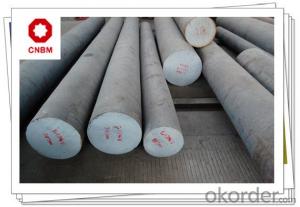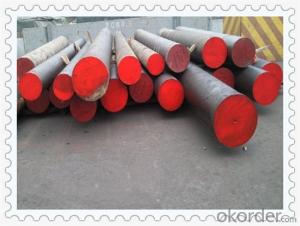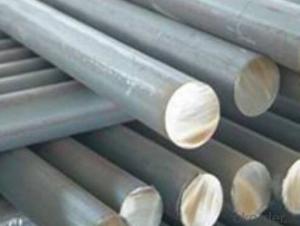aisi high strength carbon alloy steel bars
- Loading Port:
- China main port
- Payment Terms:
- TT OR LC
- Min Order Qty:
- 3 m.t.
- Supply Capability:
- 100000 m.t./month
OKorder Service Pledge
OKorder Financial Service
You Might Also Like
Specification
Shape: Round Bar/Square Bar/Flat Bar/Plate/Wire
Standard: GB/ASTM/SAE/AISI/DIN/JIS/EN/BS
Surface Treatment: Black/Peeling/Polished/Machined
Delivery Condition: Hot Rolled or Forged/Peeled or Black Surface
Test: SGS/UT 100% Elements Testing
Certificate: ISO/Mill Certificate
Service: 24 hours online server more than 20 years trading and manufacture
Quality Assurance: the third party inspection, such as SGS, BV, TUV…etc. is acceptable
Packaging Details: Seaworthy Packaging or as per customer's packing instruction
Are you a trading company or manufacturer? Manufacturer
What’s the MOQ? 3 metric ton
What’s your delivery time? 15-35 days after downpayment received
what’s your delivery terms? FOB/CFR/CIF
What's the Payment Terms? 30% as deposit,70% before shipment by T/T
Western Union acceptable for small amount.
L/C acceptable for large amount.
Scrow ,Paybal,Alipay are also ok
Why choose us? Chose happens because of quality, then price, We can give you both.
Additionally, we can also offer professional products inquiry, products knowledge train (for agents), smooth goods delivery, excellent customer solution proposals.
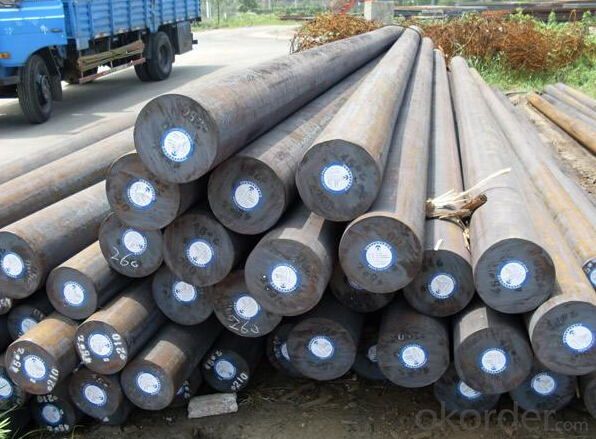
- Q: What are the different methods of preventing pitting corrosion in special steel?
- Various methods exist to prevent pitting corrosion in special steel. The objective of these techniques is to safeguard the steel surface from the harmful effects of its environment and hinder the development of pits. Some commonly used methods include: 1. Passivation: Passivation entails treating the steel surface with a chemical solution or coating to generate a protective oxide layer. This layer functions as a barrier, obstructing the infiltration of corrosive agents and minimizing the risk of pitting corrosion. 2. Alloying: By incorporating specific alloying elements into the steel composition, its resistance to corrosion can be enhanced. Elements like chromium, nickel, and molybdenum are frequently utilized as they augment the steel's capacity to form a stable passive film and withstand pitting corrosion. 3. Cathodic protection: This technique involves either utilizing a sacrificial anode or employing an impressed current on the steel surface. By making the steel cathodic, it becomes less prone to corrosion as electrons are drawn away from it, thus preventing pit formation. 4. Coatings: Applying a protective coating to the steel surface can effectively deter pitting corrosion. Coatings such as paint, epoxy, or polymer-based materials serve as physical barriers, shielding the steel against corrosive agents. 5. Environmental control: Regulating the surrounding environment of the steel can also assist in preventing pitting corrosion. This encompasses measures like controlling temperature, humidity, and pH levels to ensure they remain within acceptable limits, thereby inhibiting the corrosion process. 6. Regular maintenance: Consistent inspection and maintenance of the steel surface are vital in preventing pitting corrosion. Any signs of damage or deterioration should be promptly addressed to prevent further corrosion and potential pitting. It should be noted that the choice of prevention method relies on various factors such as the specific steel composition, the corrosive environment, and the intended application. Proper selection and implementation of these methods can significantly enhance the resilience of special steel to pitting corrosion, guaranteeing its longevity and performance.
- Q: What are the specific requirements for special steel used in the textile industry?
- The specific requirements for special steel used in the textile industry include high tensile strength, corrosion resistance, and the ability to withstand high temperatures. Additionally, the steel should have good wear resistance and be able to maintain its shape and strength even under continuous use and exposure to harsh conditions.
- Q: How does special steel contribute to the agriculture industry?
- Special steel contributes to the agriculture industry by providing durable and high-performance materials for various agricultural machinery and equipment. It is used in the manufacturing of tractor parts, plows, harvesters, and other farm implements. The strength and resistance to wear and tear of special steel enhance the efficiency and longevity of these tools, ultimately improving productivity and yield in the agriculture sector.
- Q: How does special steel perform in case hardening applications?
- In case hardening applications, the performance of special steel is outstanding. Case hardening, a heat treatment process, is used to increase the surface hardness of a material while maintaining its tough and ductile core. Special steel, also known as alloy steel, is specifically formulated to have enhanced properties like high strength, toughness, and wear resistance. When it comes to case hardening, special steel is the ideal choice due to its ability to form a hard outer layer while retaining its core properties. Typically, the process involves heating the steel to a specific temperature and then introducing a carbon-rich environment, such as through carburizing or carbonitriding. The carbon atoms diffuse into the steel's surface, creating a high-carbon layer called the case, which significantly increases hardness and wear resistance. Compared to other types of steel, special steel's high carbon content allows for deeper and more uniform case hardening. This results in improved durability, reduced friction, and enhanced resistance to wear, abrasion, and impact. Moreover, the tough core of special steel ensures that the material remains resistant to cracking or fracturing under high stress or impact loads. Furthermore, special steel offers excellent machinability, making it easy to process during case hardening applications. This makes it a preferred choice for various industries, including automotive, aerospace, tooling, and manufacturing, where components require both high surface hardness and structural integrity. Overall, special steel is highly regarded for its exceptional performance in case hardening applications. Its combination of high strength, toughness, wear resistance, and machinability makes it an excellent choice for producing durable and reliable components that can withstand demanding operating conditions.
- Q: How does special steel contribute to the power generation equipment industry?
- Special steel plays a crucial role in the power generation equipment industry by offering enhanced performance, durability, and reliability. Power generation equipment, such as turbines, generators, and transformers, operate under severe conditions including high temperatures, pressure, and corrosive environments. Special steel, with its unique properties and characteristics, addresses these challenges and contributes significantly to the industry. One of the key advantages of special steel in power generation equipment is its ability to withstand high temperatures. Special steel alloys, such as heat-resistant steels, are designed to perform under extreme conditions, enabling power plants to operate at elevated temperatures without compromising efficiency or safety. These steels maintain their strength, structural integrity, and resistance to creep and fatigue even at the highest operating temperatures, ensuring the reliability and longevity of the equipment. Furthermore, special steel offers excellent corrosion resistance, which is essential in power generation equipment due to the presence of corrosive substances like water, steam, and chemicals. Stainless steel, for instance, is widely used in power plants for its exceptional resistance to corrosion, preventing equipment degradation and minimizing maintenance costs. By using special steel, power generation companies can reduce downtime and enhance overall efficiency. Special steel also contributes to the power generation equipment industry by providing exceptional strength and mechanical properties. This is particularly important for large-scale equipment such as turbines and generators, which are subjected to high mechanical loads. High-strength special steel allows these components to withstand the stress and pressure, ensuring their safe and reliable operation over an extended period. Moreover, special steel's unique properties, such as high hardness and wear resistance, make it suitable for critical components like blades and rotors, reducing the risk of failure and enhancing overall performance. In summary, special steel is an indispensable material in the power generation equipment industry. Its ability to withstand high temperatures, resist corrosion, and provide exceptional strength and mechanical properties ensures the reliability, durability, and efficiency of power plants. By utilizing special steel, power generation companies can enhance their equipment's performance and reduce maintenance costs, ultimately contributing to the sustainable and reliable production of electricity.
- Q: Can special steel be used in the beverage manufacturing industry?
- Yes, special steel can be used in the beverage manufacturing industry. Special steel, such as stainless steel, is often preferred due to its corrosion resistance, hygienic properties, and durability. It is commonly used in various components of beverage production equipment, including tanks, pipes, valves, and fittings, to ensure the integrity and quality of the final product.
- Q: What are the different methods of surface powder coating for special steel?
- Special steel can be coated using various surface powder coating methods. These methods include: 1. Electrostatic powder coating: By charging the powder particles and spraying them onto the steel surface, a uniform and durable coating is achieved. The charged particles are attracted to the grounded steel. 2. Fluidized bed powder coating: Preheating the steel and dipping it into a fluidized bed of powder particles results in a smooth coating. The heat causes the powder to melt and adhere to the steel surface. Excess powder is removed through shaking or blowing air. 3. Flame spray powder coating: This method involves heating the powder particles with a flame and then spraying them onto the steel surface. The melted powder solidifies to form a coating. This method is commonly used for repairing damaged coatings or larger steel structures. 4. Thermal spray powder coating: By heating and propelling the powder particles onto the steel surface using a thermal spray gun, a dense and well-adhered coating is achieved. This method is suitable for high-wear applications and corrosive environments. 5. UV-cured powder coating: Applying a UV-sensitive powder onto the steel surface and exposing it to UV light initiates a chemical reaction that results in a hard coating. UV-cured powder coating is known for its fast curing time and excellent resistance to chemicals and UV radiation. Each method has its own advantages and considerations, and the choice depends on factors such as the specific requirements of the steel surface, desired coating thickness, and production volume.
- Q: Can special steel be used in the aerospace parts manufacturing industry?
- Yes, special steel can be used in the aerospace parts manufacturing industry. Special steel alloys, such as stainless steel and titanium alloys, possess properties like high strength, corrosion resistance, and heat resistance, making them suitable for use in critical aerospace components like engine parts, landing gears, and structural elements. Their ability to withstand extreme conditions, along with their lightweight nature, makes special steel a preferred choice in the aerospace industry to ensure safety, durability, and optimum performance of aircraft.
- Q: How does the cost of special steel compare to regular steel?
- The cost of special steel is generally higher compared to regular steel. Special steel is specifically designed and produced to possess exceptional properties and characteristics that regular steel does not have. It undergoes additional processes such as alloying, heat treatment, or specialized manufacturing techniques to enhance its strength, durability, corrosion resistance, and other desirable attributes. These added steps in production increase the overall cost of special steel. On the other hand, regular steel is more readily available and is produced on a larger scale. It is often used for general purposes and applications where high-performance qualities are not required. Regular steel is relatively cheaper due to its lower production costs and wider availability in the market. However, it is important to note that the cost comparison between special steel and regular steel can vary depending on various factors such as the specific type of steel, the quantity being purchased, market conditions, and any additional customization required. Therefore, it is advisable to consult with steel suppliers or specialists to get accurate pricing information based on specific requirements.
- Q: What are the different methods of non-destructive testing for special steel?
- There are several methods of non-destructive testing (NDT) that can be used to evaluate the quality and integrity of special steel without causing any damage. These methods include: 1. Ultrasonic Testing (UT): This method uses high-frequency sound waves to detect defects, such as cracks or voids, within the special steel. A transducer is used to emit sound waves into the material, and the reflections or echoes are analyzed to identify any anomalies. 2. Magnetic Particle Testing (MT): This technique is based on the principle of magnetic fields and is primarily used to detect surface or near-surface defects in special steel. A magnetic field is induced in the material, and magnetic particles are applied. Any discontinuities or defects will cause the particles to gather, forming visible indications. 3. Liquid Penetrant Testing (PT): This method involves applying a liquid dye or penetrant to the surface of the special steel. The penetrant is drawn into any surface defects through capillary action. After a certain period, excess penetrant is removed, and a developer is applied to make the indications visible. 4. Radiographic Testing (RT): This technique utilizes X-rays or gamma rays to inspect the internal structure of special steel. The material is exposed to radiation, and a film or digital detector captures the transmitted radiation. Any inconsistencies or defects within the material will be visible on the resulting image. 5. Eddy Current Testing (ECT): ECT is mainly used for detecting surface or near-surface defects in special steel. It works by inducing an alternating current into a coil, creating an electromagnetic field. Any variations in the material's electrical conductivity or magnetic permeability caused by defects will generate changes in the coil's impedance, which can be analyzed. 6. Visual Testing (VT): Although not a direct NDT method, visual inspection is often used as a preliminary step to identify surface defects or irregularities in special steel. This method involves a thorough visual examination of the material using appropriate lighting and magnification tools. These different methods of non-destructive testing for special steel provide valuable insights into the material's quality, helping ensure its structural integrity and reliability in various applications. The choice of method depends on factors such as the type of defect being sought, the location of the material, and the specific requirements of the industry or application involved.
Send your message to us
aisi high strength carbon alloy steel bars
- Loading Port:
- China main port
- Payment Terms:
- TT OR LC
- Min Order Qty:
- 3 m.t.
- Supply Capability:
- 100000 m.t./month
OKorder Service Pledge
OKorder Financial Service
Similar products
Hot products
Hot Searches
Related keywords
